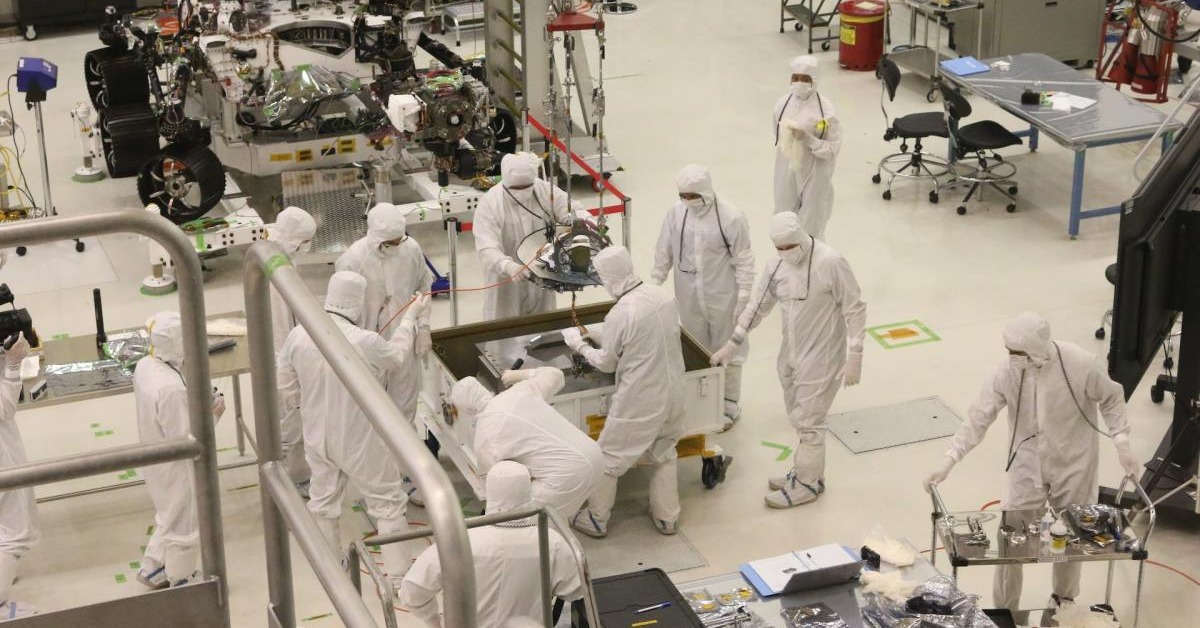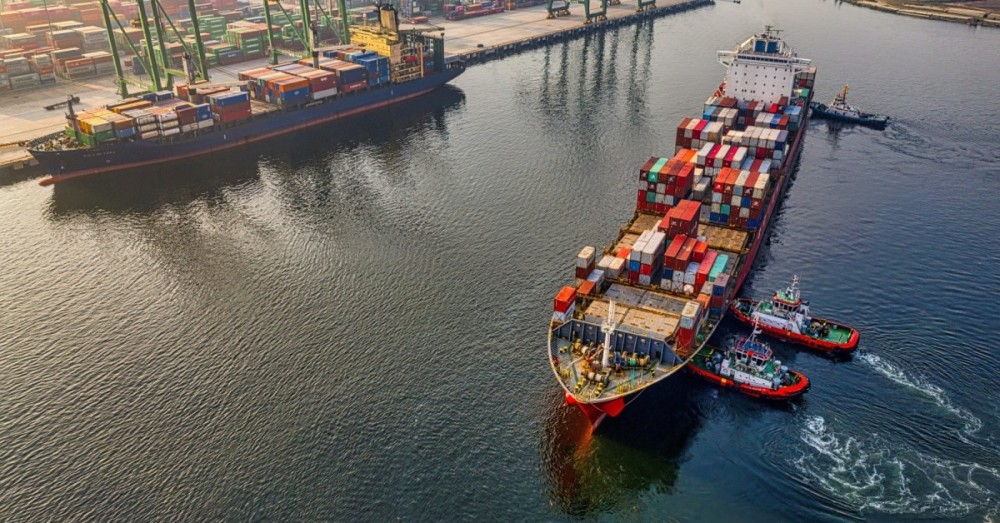
How Much Will You Make as a Channel Marketing Manager?
Channel marketers across the board earn good money. There are [...]

Distribution managers are integral to the supply chain, the process of getting goods from point A to point B. They help keep warehouses streamlined and adequately stocked, manage transportation and scheduling, monitor security, and scrutinize budgets for potential savings.
Distribution managers earn a wide range of salaries. Some make under $50,000, while others bring in more than $120,000 per year.
Why the disparity? For starters, supply chain professionals often receive big raises early in their careers. After just five years of work experience, most earn over $20,000 more than they did when they started.
Distribution managers can also qualify for better supply chain jobs with the right work experience, education, and certifications. Some potential six-figure career transitions include:
You may never earn over $100,000 per year as a distribution manager, but that’s OK. Most successful distribution managers move on to higher positions, including some that pay six figures.
So, how much does a distribution manager make? This article addresses that question and these additional questions:
Distribution managers oversee the delivery of a company’s goods to customers. No, they don’t ride along in the truck to ensure drivers reach their destinations on time. Rather, their job involves coordinating among the warehouse, suppliers, and customers. Distribution managers also typically take on budgeting responsibilities, and they are responsible for volume forecasting—projecting sales and making sure to keep enough of it on hand. If something gets damaged in transit, distribution managers clean up the mess—though part of the job is to ensure that such things don’t happen.
Depending on a company’s size, distribution managers may be asked to supervise a warehouse or distribution center (the job might be called distribution center manager). This likely means having a role in the hiring process, inspections, loading dock supervision, and safety regulation compliance.
Both small and large companies employ these professionals. A distribution manager at a small company may be deeply involved in warehouse operations. In contrast, a distribution manager at a large company may not handle every aspect of the distribution chain. Large companies often employ numerous supply chain professionals, and you may end up relying heavily on a purchasing manager or production manager to help make decisions.
Distribution managers can work for manufacturers, retailers, or even the military. While “customer” can mean an individual who purchased a gold-plated back scratcher off Amazon (this is often called B2C, short for “business to consumer”), it often means selling to other companies (B2B, short for “business to business”). For example, the distribution manager at a dairy may send large quantities of milk to an ice cream factory (not every product needs to be finished). In this instance, your job responsibilities might include:
It’s easy to confuse distribution managers with supply chain managers or logisticians. The job description for each includes making sure products move efficiently through the supply chain. However, the two jobs differ in significant ways.
The supply chain manager also oversees getting goods from point A to B, but with a big picture perspective—at an international company, supply chain managers may even be responsible for global deployment. A large part of their job is finding and correcting inefficiencies by utilizing big data analytics and artificial intelligence. They also need to acquire the goods that distribution managers ship out—for instance, a company that produces cabinets needs to find the best lumber for the lowest price. At a large company, the distribution manager may work with or report to the supply chain manager.
It can be difficult to pin down a universal job description for a logistics manager. Depending on the company’s size, logistics managers can have regional duties—such as shipping to the northeast or southern United States. At a small company, they may take on all aspects of procurement and distribution. In some cases, these professionals may even perform the duties of a distribution manager.
It’s important to note that the job descriptions for all supply chain professionals are somewhat fluid, and can depend on your situation. Large companies employ more workers and frequently ask them to specialize in one area of the supply chain; small companies may look for generalists.
You can become a distribution manager with just a two-year associates degree or even a high school equivalent education and a few years of experience in distribution. However, to set yourself up for long-term success in supply chain operations, you will likely need a bachelor’s degree.
Some of the most common degrees for distribution managers are in:
You might also earn a degree in logistics and supply chain management, which directly prepares you for a career.
A bachelor’s in logistics and supply chain management develops the necessary skills to land an entry-level job and advance your career. According to the The University of Texas at Dallas, “Students in the supply chain management program learn to communicate solutions in terms that resonate with corporate executives, connecting the supply chain to a company’s overall viability.”
Most universities offer these degrees through their business or management school under various titles. A Bachelor of Science in Logistics and Supply Chain Management and Bachelor of Science in Supply Chain Management are likely identical, or near-identical, degrees.
Coursework for a supply chain management degree typically includes topics like:
You might begin a career in distribution as a warehouse supervisor or transportation specialist, or in inventory control.
The average annual salary for each of these jobs hovers around $50,000, though inventory control specialists make close to $45,000.
Salary estimates for distribution managers swing widely. According to Glassdoor, the national average salary for a distribution manager is under $50,000. Indeed reports a median salary over $70,000—with distribution managers working at the Department of Defense earning over $120,000 per year.
The US Bureau of Labor Statistics (BLS), a highly reliable source, lists the mean annual income for transportation, storage, and distribution managers at $103,320. The BLS breaks down wages by industry, providing a more specific picture of which distribution managers make bank. Telecommunications and pipeline transportation of crude oil are the highest-paying industries—these managers earn nearly $150,000 annually.
According to the BLS, the industries that employ the greatest number of distribution managers include (in descending order of number of jobs):
Professionals in each of these industries earn more than $95,000 annually but make up less than five percent of the total distribution workforce. Distribution managers at smaller companies tend to earn less than those at larger companies. Work experience and education can also impact your earning potential, helping to explain the seemingly vast salary range.
With the right work experience and continuing education, distribution managers can qualify for high-paying jobs in supply chain management. Sometimes getting a promotion is just about putting in the hours. According to the previously cited study by the Association for Supply Chain Management (ASCM), the average entry-level supply chain job pays $53,000 in the first year. After five years, that number increases to $74,100. After 20 or more years, these professionals can expect to earn a base salary of $100,000.
A study produced by the American Production and Inventory Control Society (APICS) indicates that “many supply chain and operations management professionals gain work experience in multiple roles as they advance through management positions.” In other words, career mobility plays a critical role in determining SCM careers and incomes. Workers who stay at one company for their whole career (common this industry) may receive promotions every few years.
Career mobility also derives from industry certification and education. Certified professionals are more likely to hold management positions. According to ASCM, “those who hold one certification reported a median salary that was 18 percent higher than those who are not certified.” Top certifications include:
You can also improve your career prospects by returning to school for a Master of Science in Supply Chain Management (MSCM). According to the website for the The University of Tennessee – Knoxville‘s program, this degree prepares you to “leverage supply chain management concepts, functions and enablers to deliver real impact to your organization.” If you want to transition into a more traditional management position, you might complete a Master of Business Administration (MBA) with a focus in supply chain management and operations.
Your area of concentration will help determine your next career move. Those who complete a master’s in supply chain management with an operations management concentration can become operations managers. Operations managers focus more on the product development side of things, and are often responsible for improving inefficiencies within a company.
Other high-level supply chain job titles, and their expected salaries, include:
Distribution managers may start out earning a comparatively low salary. However, those who work hard and stick at it should enjoy excellent opportunities to move into higher-paying positions.
Questions or feedback? Email editor@noodle.com

Channel marketers across the board earn good money. There are [...]

Lean Six Sigma approaches minimize error while maximizing capacity. Waste [...]

The average salary for industrial engineers varies based on specialization, [...]

The term information technology covers a wide swath of computing [...]

Organizations employ lean supply chain management principles to improve profits [...]
Categorized as: Supply Chain Management, Business & Management